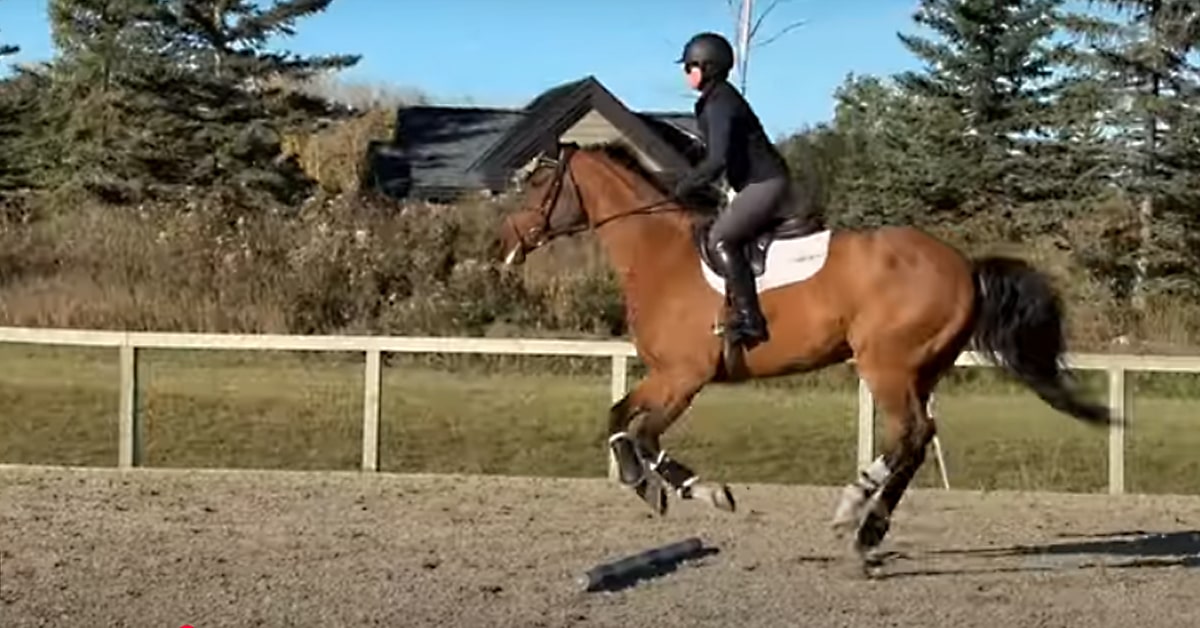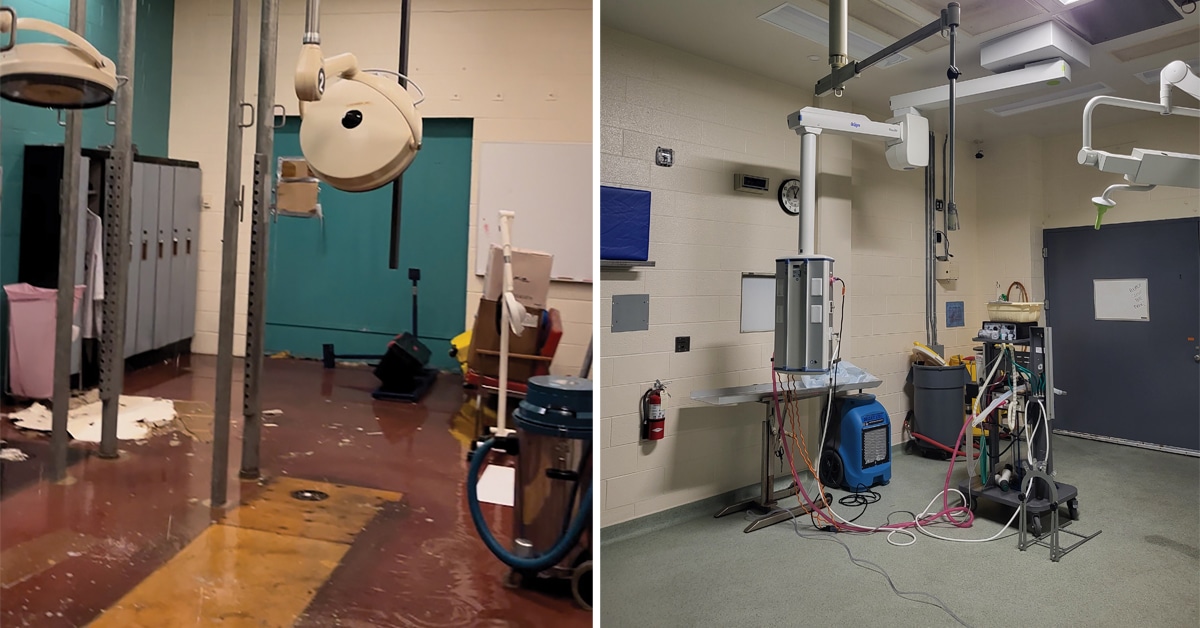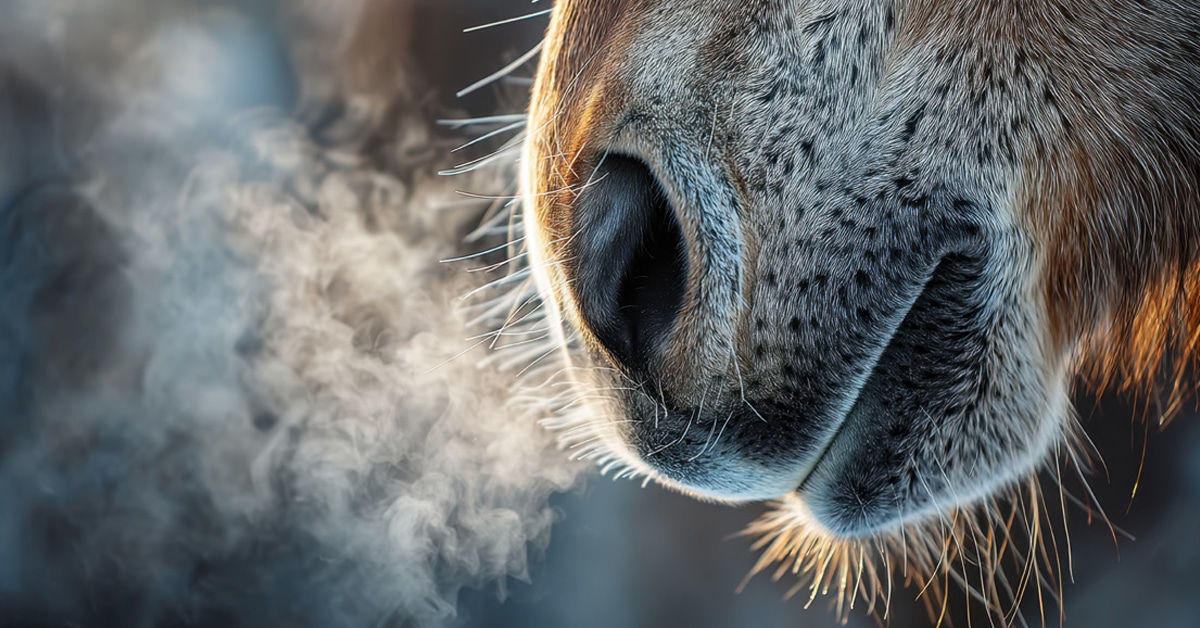It will come as no surprise to those who know or follow him that Eric Lamaze intends to win. He might not be in the irons (for now), but that has not diminished in the slightest his drive to be on top. As Canada’s newest chef d’équipe, Eric plans on taking all that ambition, passion and knowledge and using it to revive Canada’s show jumping team.
“My vision is to create a real team atmosphere,” he explained about his vision. “I don’t mean the riders that are going to La Baule or Rome, I’m talking about a team. A group of Canadians that want to embark on the dream together. We are going to create something special. We’ll follow each other, we’ll work with each other, we’ll have an understanding that we all help each other. I’m making great strides in that. I’m changing the mood of how people think about the team.”
The Transition
Although he competed and won his last Nations’ Cup outing this past September at the Spruce Meadows ‘Masters,’ Lamaze was finding it increasingly difficult to ride while dealing with health issues related to his brain cancer.
“I was struggling trying to ride and trying to deal with cancer and all the other issues associated with it including staying alive while competing without any medication. I couldn’t just give up on riding, but eventually it wasn’t safe anymore,” he said of his ordeal.
The best doctors and medicine notwithstanding, Lamaze credits the sport and the horses with giving him the strength to carry on.
“I feel great now. I can take medication every week and I live a normal life at the moment. I am truly enjoying it especially as I am able to fully dedicate myself to my students.”
“Show jumping saved my life. The year I rode and wasn’t feeling well, the horses saved my life. The only time I didn’t feel sick was when I was on course. When you’re doing chemo, it’s very hard for your body to function at a normal rate. Everything slows down, including the oxygen to your brain, and everything becomes a bit harder to do, but when I rode the adrenaline would rush and I felt great. For that moment I didn’t feel sick anymore. I might have gone home crying a lot of Sundays because I wasn’t on medication, but if I had to be in a hospital or be out of the sport because of cancer, I would never have made it. Believe me, horses saved my life, 100 per cent. It’s not even a question of maybe.”
Eventually, the cumulative effects of years of chemo and constant fighting against this condition forced him to make a choice to stop competing.
“I feel great now. I can take medication every week and I live a normal life at the moment. I am truly enjoying it especially as I am able to fully dedicate myself to my students.”
Pulling Everyone Together
Eric has always surrounded himself with a tight-knit group of supporters who helped him achieve his goals. He plans on creating that same kind of atmosphere for the Canadian team.
“I’m good at it,” he said of his ability to build winning teams. “I know how to get a team ready for a Championship. I know what it takes. I’ve been in Europe for 20 years and I know the sport inside and out. I’ve competed with the best riders in the world. I was number one in the world myself. I had the best horse in the world. There is not a thing I don’t know in this sport. Most people that will take this job will take it 10 years after they left the sport, but I just rode in my last Nations’ Cup in September. I’m right in the thick of things. I get it and people respect that.”
Eric plans on being forthright with riders to help them reach their potential.
“I’m going to do it with authority, with respect and with honesty. I’ll look people honestly in the eye and tell them where their weaknesses are. It wasn’t long ago that I rode with a lot of them, right? I can look at people – my credentials allow me to do that – and they listen. I’ll tell them where their weaknesses are and where they lack strength.”
Such frank assessments can be tough for some to handle, but Eric feels that it’s the key to success.
“There will be some people who don’t agree with me, and I’ll have to respect that. They can be successful their own way, but to be on the team there will be certain things that you will have to do and one of them is as simple as having great team spirit and being supportive.”
“When you ride for me in a Nations’ Cup you will ride for your country, you will ride for me, you will ride for yourself.”
This policy has already been put in action. In order to be considered for the Nations’ Cup team in Wellington, Florida, this coming weekend, Eric insisted that riders nominate their best horse. The event, however, is sandwiched between two lucrative 5* weekends and riders would likely have to forgo at least one of them to have their horse ready for team competition.
“Maybe it was growing up in the era of Ian Millar, but I’ve always been a team guy,” said Eric about his selection strategy of putting his country first. “As a rider, competing for my country meant a lot to me.”
Eric believes that the payoff for that level of dedication will be well worth the effort.
“When you ride for me in a Nations’ Cup you will ride for your country, you will ride for me, you will ride for yourself. You will be well trained and ready for the competition; there is nothing that will have been missed in working closely with your current trainer and team. As a team we are going to deliver. With luck on our side, we are going to start winning some Nations’ Cups. I don’t like to lose.
“I had great energy as a rider, and I will not lose this energy as a coach. I absolutely will not. For me, to watch one of my students win is the same as me winning. I get the same feeling. I love that feeling and I’m not about to lose that.”
Transparency, Communication & Growth
Eric remains an active coach with his own students, but to avoid any appearance of conflict, he has specifically requested that the EC Jumping High Performance Committee, of which he is now Chair, review all Nations’ Cup team choices. The team’s previous chef d’équipe and Chair, Mark Laskin, consulted the committee for the Olympics and the World Championships, but ultimately, he had the final decision on who was on every team.
“Too many people have been left out over the years and it’s always the same five or six people riding all the time on every team. I don’t want that.”
“I don’t want a committee that will just listen and say yes. I want a committee that is going to argue with me,” explained Eric of the committee that includes Marni Von Schalburg, Mike Lawrence, and Gail Greenough. “I want them to come with their opinions and we’ll talk before every team is chosen so that the decision is not solely mine, we all have to agree. I want to be transparent all the way.”
Although Canadian riders are scattered throughout the world, Eric plans on communicating regularly with them all. He’s already spoken with most of the high performance riders and is familiarizing himself with the others before reaching out to them as well. His goal is to increase the number of team riders that Canada has to draw from.
“Too many people have been left out over the years and it’s always the same five or six people riding all the time on every team. I don’t want that. I hate that. I think that a pool of say 15 is well within reality — 20 would be a dream. I want to reach that group and make them better. I want to give a chance to everybody to get better. Nobody can say in the era of Eric Lamaze that they didn’t have a chance.”
Riders can expect that Eric will want them to visit Europe regularly if they are serious about improving. He credits his own move to Europe for his success and believes that riders need to compete regularly against the best in the world to reach the highest levels.
“There is a way to grow a business at home and still spend time in Europe,” he said of the struggle that North American riders face in balancing a business with their team aspirations. “You don’t have to do it to the extent I did and be there all the time, but you must be established somewhere in Europe where you can do a lot of shows. In my day, two-star and three-star shows didn’t exist, but now they do and you can bring a student to Europe. Some of the big shows even have one-stars. I bet you it’s cheaper to go and compete there than in North America.”
Eric is equally excited to work with EC Jumping Youth Advisor, Dayton Gorsline, to build Canada’s younger athletes.
“I want to take care of the youth. Nobody knows how to get to the Olympics or the five-star level,” he explained. “I’m going to work with him to show the kids and their parents a pathway and how to progress through the levels up to U25, then two-star then three-star in Europe and then on to the five-star level.”
He’s particularly excited about a video he’s working on with Ian Allison of Spruce Meadows.
“The video is going to create some excitement and revive the spirit of the Canadian team and what it means to ride for Canada. People have forgotten that.”
Unorthodox but Funded
While most consider hiring Eric as chef d’équipe a no-brainer, Equestrian Canada should be commended for adapting the position to suit his skill set. EC is not known for its flexibility, no doubt a necessity for a small organization that is responsible for so many facets of the industry. Nothwithstanding his impeccable credentials, it must have taken a leap of faith to hire a candidate who admittedly isn’t strong with the mundane administrative tasks.
“I’m useless at that part and will definitely need a lot of assistance,” he said of the necessary clerical duties that keeps the sport engine running smoothly. But what he might lack in paper-pushing skills, Eric more than makes up for in other areas where the team is in desperate need of help — like money.
Between training camps and taking teams to international competitions, the question of funding becomes an issue. The Show Jumping Team received over $1 million from Sport Canada’s Own The Podium program leading up to the 2016 Olympics in Rio, but all the money was pulled that same year and has not returned. While the Jump Committee does raise funds through levies at horse shows, it’s not nearly enough to finance a successful high performance team.
“Don’t worry about funding. I believe that with good results from the Canadian team on the international scene, sponsorship opportunities will follow and I will personally get involved in reaching that goal,” Eric stated matter-of-factly. “For this year, I want every rider to be fully supported when representing Canada.”
“I don’t think half-way. I’m a determined guy.”
Indeed, since the beginning of his career, Eric has always been able to attract show jumping’s top families, and still does. He currently works closely with Canadians Tara and Mark Rein who are big fans of Canadian show jumping. Eric hopes that other Canadian owners will invest in supporting team Canada and young talented riders.
“I want being on the team something to be valued,” explained Eric. “I want it to mean something to be part of the Canadian team, not just receiving the red jacket and making posts about it on social media.”
“It’s going to be different, but it’s exciting.” said Erynn Ballard, Canada’s top-ranked rider, of having Eric as chef. “Eric has proven that when it comes to championships, he knows how to win medals. We all have something to learn from him. We need to take the opportunity to gain from his experience and knowledge and win with him.”
“I’m pumped up,” Eric enthused. “I’ve got this knowledge and I want to give back. The departure of Ian Millar and my absence from the ring left a big void for the Team. We need a new vision for the Team. I put myself in that frame of mind and I’m going for it. I don’t think half-way. I’m a determined guy.”
An ambitious goal, but a promising one. Such resolve built a champion, and now, all that determination is being focused on rebuilding Canadian show jumping.
The Latest









